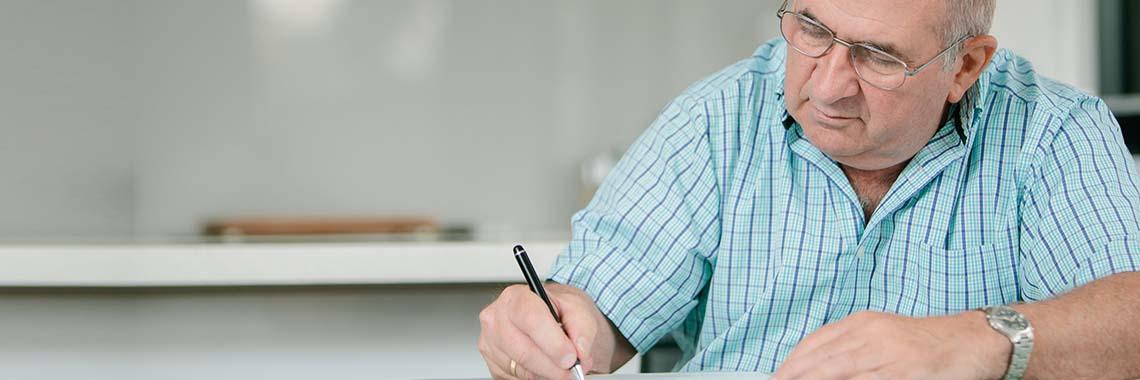Still going strong
Every person's Deep Brain Stimulation journey is unique. This is Peter's. Peter was diagnosed with Parkinson's in 2001, aged 53.
Peter Raymond wasn't keeping up with other members of his cricket team; he found himself dosing off at traffic lights in warmer weather and he'd bought an electric toothbrush because he didn't have the strength to brush his teeth.
Tennis elbow, bad posture, arthritis, fatigue. Peter knew that he wasn't suffering 'old age', but the constant physio appointments, coupled with the mountain of anti-inflammatory pills he was taking to curb the symptoms, signalled to Peter - a man who rarely fell ill - that something was up.
Then Peter visited his GP, who asked three seemingly simple questions:
1. Could he squeeze the doctors hand - not with much pressure
2. How neat was his handwriting? - it was indecipherable
3. Did he swing his arm when he walked? - no
It took five minutes to diagnose what had been bothering Peter for a decade. It was Parkinson's.
"I was the same person, just a bit slower and my family needed to learn tolerance. I have stopped some things, but have taken up new activities to replace these. For example, I've replaced cricket and tennis, with indoor soccer and basketball. I became a civil celebrant so I could oversee my daughters wedding. I'm still active - but in different ways."
Peter remained active, albeit on medication for more than a decade. Over time the medication increased from one pill per day to around 14-15 and he experienced dyskinesia. It was at this point Peter raised the option of Deep Brain Stimulation (DBS) with his neurologist. Peter was considered a 'good candidate' and so the journey towards DBS started.
A point Peter reinforces to people diagnosed with Parkinson's considering DBS: "Don't wait. Years ago the thinking was to keep DBS up your sleeve, but it shouldn't be a last resort."
"For me, it is a quality of life issue rather than a health issue. It's about being able to spend quality time with my five grandsons. It's about being active in the community and maintaining that self-worth people attribute to giving back either at work, with their families, or through their community groups/clubs. I intend to be around for a long time to see my grandkids grow up."
Peter is also keen for people to understand that every person's DBS journey is unique. The key is embracing the journey and enjoying the people you get to know on the way.
"Right from the start, I had a brilliant result." Almost immediately my medications reduced to just one pill a day; I had no dyskinesia; I was getting a good night's sleep (when I hadn't slept properly for years) and within four days I was out of hospital at A Walk in the Park 2014. Live was good. Two years on - it still is."
Peter will be participating again in A Walk in the Park in Melbourne on Sunday 28 August, not only to raise much-needed funds for research and medical care, but to show others that Parkinson’s is a manageable condition.
Join Peter and thousands of Victorians for A Walk in the Park. Register today.
